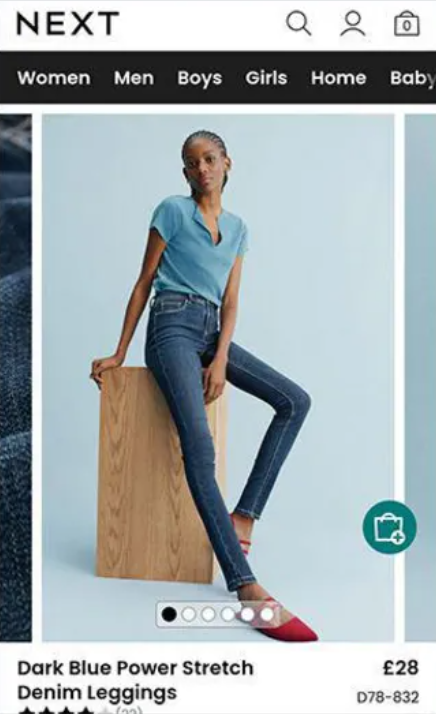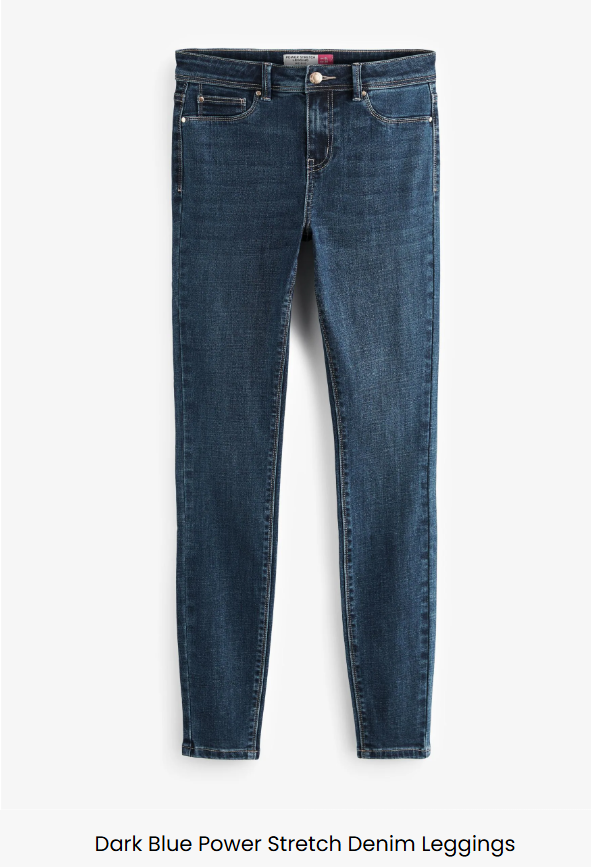NEXT TO REMOVE AD FEATURING ‘UNHEALTHY THIN’ MODELS: A BOLD STEP TOWARDS BODY POSITIVITY
By: Prachi Khatri
As much as we would like to think that things are changing in the fashion world and brands keep body positivity at the front and center, the reality will leave a rancid taste in our mouths. Evidently, we are still away from the society where women are allowed to be any size, they want and accepted as they are. Yes, we have so much diversity in ads, and we see sizes from XXXS to XXXL, but we still speak about women's bodies as too thin or too healthy.
The Advertising Standards Authority (ASA), an independent British regulator for advertising, has banned an ad campaign by British retail giant Next featuring an “unhealthy thin” model. The ad has been running on the Next website since September 2024 as a part of marketing for their “Blue Power Stretch Denim Leggings.”
Source: BBC website
ASA received several complaints claiming the model in the advertisement for its denim leggings appeared “too thin.” The Advertising Standards Authority (ASA) assessed the advertisement against other images of the same model and didn’t find it unhealthy in all of them. However, one of the pictures gave the impression of an ultra-slim leg due to the model’s stance and camera angle. ASA found the banned image styling was “irresponsible,” setting wrong standards in the fashion industry.
Yes, there are plenty of girls that are naturally skinny, and advertisers must be mindful of all body types. Next, they admitted they didn’t digitally retouch the model's appearance, but in one picture did digitally alter the appearance of the leggings by bringing them further down to the model's ankles, which gave the impression that she has longer legs, making it look unproportionate.
The advertisement standard authority maintained that in no way, shape, or form did the model look unhealthy, but portions were off in the advertisement. ASA rules say advertisers should not depict models in a way that makes them underweight, as this could be considered as promoting unhealthy body image. The banned image from the campaign does just that, and hence the ad may not be published again in its current form.
Many public health professionals and mental health experts have long warned of the link between media depictions of thinness and increased evidence of eating disorders, anxiety, and low self-esteem among teens and younger generations. A survey from 2023 by the Royal Society for Public Health (RSPH) in the United Kingdom shows 9 in 10 girls are unhappy with their bodies, and about 70% of young people feel self-conscious about their bodies after viewing “perfect” photos in advertisements.
Source: Next.co.uk website
Body positivity campaigners have applauded Next's decision as a much-needed stance against old beauty standards and a refresher for brands to evaluate if they are doing enough. Organizations like the “Be Real Campaign” and the “Body Confidence Campaign” in the UK have applauded Next's decision to pull down the campaign pictures and for listening to public opinion.
Fashion professionals believe that this could have a major impact on the industry. This is more than just deleting an advertisement; it is about rewriting the narrative around what is desirable and beautiful.
It is not about a model “too thin” in the Next’s ad but accepting authenticity and celebrating people as they are. It is only with social responsibility and values like inclusivity, authenticity, and diversity that brands can position themselves for long-term impact and customer loyalty. The world needs a place where women can buy a pair of leggings not because they want to shrink themselves, making them look slim, but because of their comfort. Looking ahead for days when brands promote inclusivity is not just a way of following a recent trend to cash in on it but truly embodying the belief.


